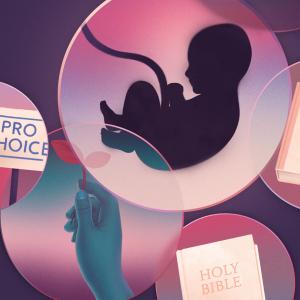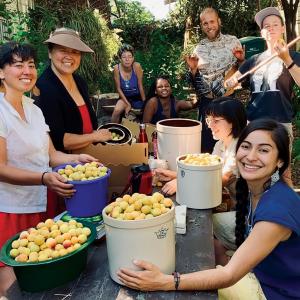
Liz Cooledge Jenkins is a Seattle-based writer and preacher who blogs at lizcooledgejenkins.com and Patheos. Her book, Nice Churchy Patriarchy: Reclaiming Women's Humanity From Evangelicalism, is forthcoming from Apocryphile Press.
Posts By This Author
Churches Can Utilize Volunteers Without Exploiting Free Labor
The Secrets of Hillsong, a docuseries streaming on Hulu, traverses some wide-ranging — and alarming — ground, detailing the international megachurch’s history of sexual assault allegations, affairs, child molestation, and cover-ups. In the midst of all this, it might be easy to gloss over something a little less flashy: what one might call, to put it mildly, an unhealthy volunteer culture.
When It Comes to the Climate Crisis, What Comes After Lament?
Elizabeth Weinberg draws connections between things many of us haven’t thought to link together. In her 2022 book, Unsettling: Surviving Extinction Together, a whale’s excrement is not just feces but the nourishment that fuels whole ecosystems.
Who Are Christians Called To Be in a Post-Roe World?
THE REPRODUCTIVE HEALTH landscape in the United States has changed drastically in the last year, and it continues to change. But some things remain the same. One consistent aspect of our ongoing national conversation is that many of those who support the greatest restrictions, including on access to abortion and other elements of reproductive health, claim Christian faith as a primary motivator.
I spent much of my young adulthood in evangelical contexts where people had strong opinions about faith and reproductive rights. Most evangelicals I knew believed that life begins at conception and thus abortion should be broadly prohibited by the law as akin to murder. In these spaces, the Bible was considered the main — sometimes the only — source of authority when it came to navigating ethical questions. I’ve come to realize, though, that the Bible hardly speaks anything straightforward into the intensely personal realm of when human life begins and what decisions should be made in complicated, real-world situations.
I wonder, then: What does it look like to wade through this murky territory as people of faith? Who are Christians called to be in a post-Roe world?
Healing Grounds for the Earth — and for Christianity
WHEN I SPEAK on the phone with Anne Symens-Bucher, she tells me about the end of St. Francis of Assisi’s life. Francis “was losing sight, suffering from the pain of the stigmata, and on the margins of the community that had grown up to follow him,” Symens-Bucher explains. “This is the moment he writes the ‘Canticle of Creation.’” Symens-Bucher is one of the founders of Canticle Farm in Oakland, Calif., a community of eight households where the fences are taken down, giving access to a large garden in the middle. Canticle Farm is made up of people who, in Symens-Bucher’s words, are “experimenting at the intersections of faith-based, social justice-based, and Earth-based nonviolent activism.” In his canticle, after which this community is named, Francis praises God from a deep sense of kinship with all creation. He sings of “brother fire,” “sister water,” “brother wind,” “mother earth.” Birthed as Francis approaches his own death, it is a vivid, sober-minded song of the interconnectedness of all life.
Western colonialist people have often failed — or refused — to recognize this interconnectedness. Earth, animals, plants, and people suffer from our (and I say “our” because I speak as a white U.S. citizen) denial of this oneness. Soils are depleted, waters and air are poisoned, and sea levels rise and temperatures warm, threatening the most vulnerable among us immediately, and all of us eventually. Perhaps in this time of environmental crisis, we might find a “canticle” moment, one that renews our kinship with creation.
Liz Carlisle explores these questions in Healing Grounds: Climate, Justice, and the Deep Roots of Regenerative Farming. As an environmental scientist looking for healthy soil, Carlisle interviews experts who are Black, Indigenous, and people of color — scientists and farmers engaged in work ranging from bringing buffalo back to the prairie ecosystems of Montana to growing mushrooms on ancestral forest land in North Carolina. Through the process, she realizes that if we’re serious about fighting climate change by rebuilding soil carbon, we’re going to have to address the very roots of the colonialist systems in which we live.
Extraordinary Courage, Extraordinary Kindness
“Boaz goes out of his way, above and beyond what might have been normal or expected, to use his relative wealth, and security, and power to affirm Ruth’s dignity and value. He did this in the midst of a world that, not unlike ours today, did not always value people who were poor, or immigrants, or of a minority race, or ethnicity, or women.”




